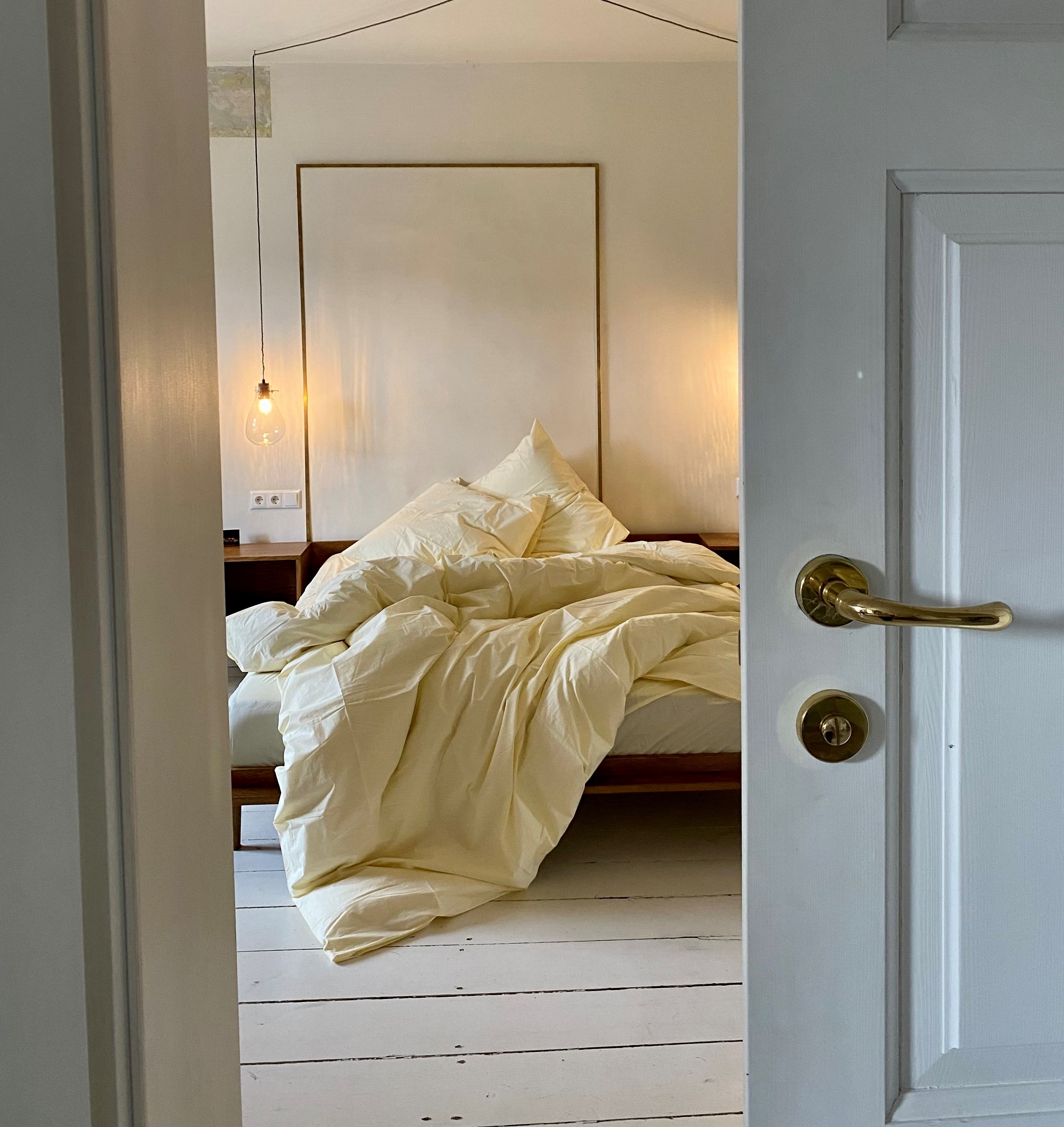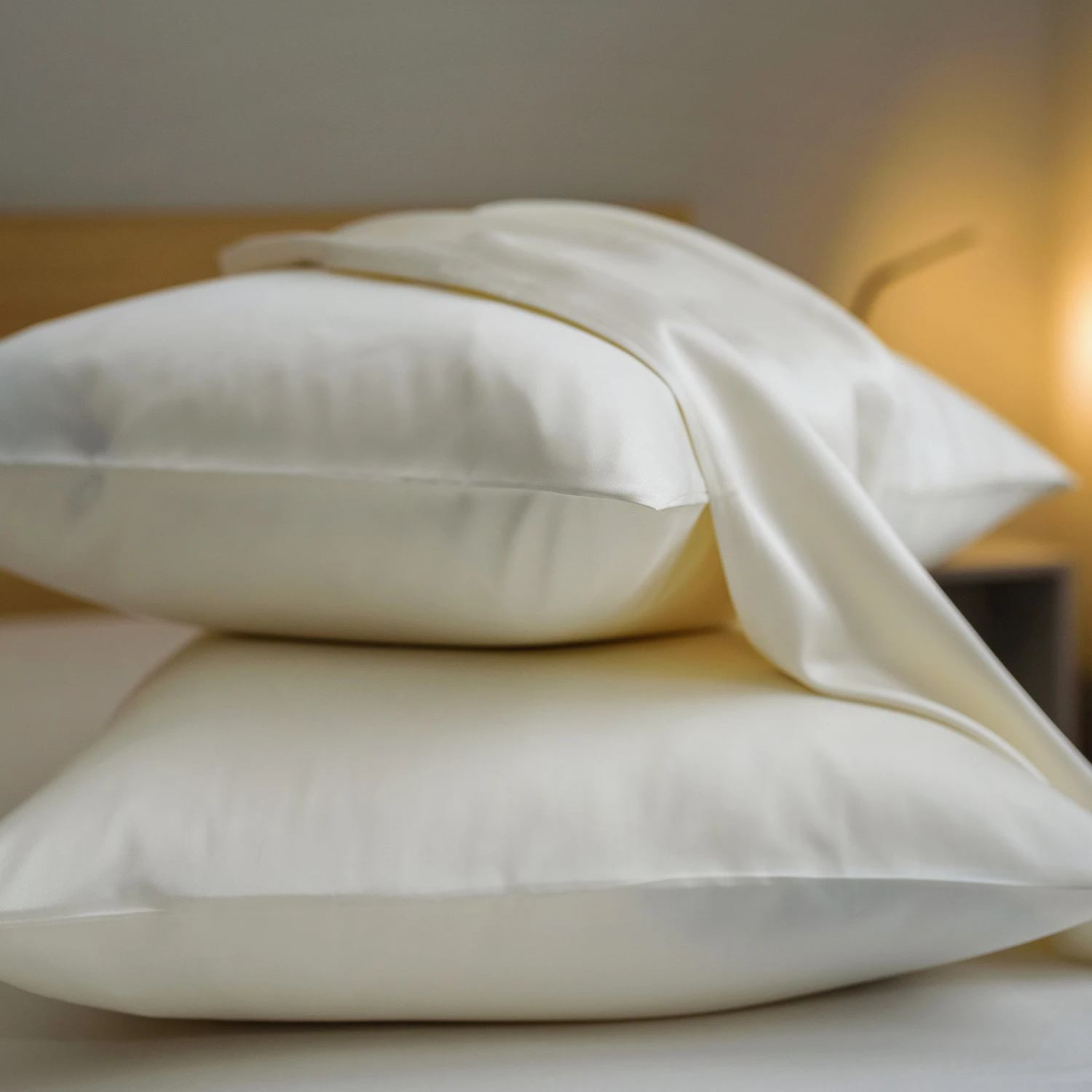
The ABC of quality sleep: a conversation with dr. Evelina Pajėdienė
Everywhere in the world, people suffer from poor sleep. Some struggle with insomnia or various disorders; others simply feel like they never experience quality rest. In many countries, very few people speak of this as a serious issue, with many of us not even considering bad sleep a problem at all. Bedroommood’s Rūta Kisieliūtė talked to a neurologist, sleep expert dr. Evelina Pajėdienė to find out the most common sleep issues and ways to tackle them best.
First of all, we cannot help but wonder why, although we spend about a third of our lives sleeping, we still don't prioritize it? According to dr. Evelina, it happens naturally. As we are young, we can easily handle the lack of sleep, so we don‘t pay much attention. Only over the years, we start taking care of our sleep quality as we begin noticing that we don‘t have proper sleeping habits, easily get insomnia or other issues.
Speaking of the most common issues, insomnia is the first one the doctor tells us about. There are several types of it – some struggle with falling asleep, others find themselves awake in the middle of the night; the rest wake up hours before the alarm goes off. Once you notice that you have insomnia, it is crucial to start treating it immediately. Otherwise, it can go on for a long time, become chronic, and cause long-term, serious problems.
Many people also experience breathing issues at night: they start coughing or snoring while asleep; their breath stops for short periods. Usually, our partners tell us about such issues, as the person who experiences them often doesn‘t feel anything. However, some might have bad dreams of suffocating or drowning. Partners also usually inform about periodic limb movements during sleep or sleepwalking.
Such issues are often related to other health problems, but there are cases when they are caused by strong emotions, stress, and anxiety. Most of them aren't dangerous; however, if you do notice continuity, start feeling constant sleep deprivation and tiredness, you should talk to a doctor.
Recently, sleep tracking apps have become very popular. They observe sleep phases, help to fight jetlag, watch your breath, and listen to any sounds you make while asleep (like snoring or gnashing). However, the sleep expert advises using those with caution: if we feel well-rested, even though our apps don’t show ideal results, it is much better to listen to your body rather than the device.
When asked what people should begin with when it comes to setting up a sleep routine, dr. Evelina stresses the importance of regularity. Ideal sleep time is no later than 11 pm and should last as long as you need. The duration is very individual, but the standard recommended amount of sleep for adults is from 7.5 to 8.5 hours each night. It is advisable to adhere to the schedule on weekends, too. While it is natural for us to stay up longer sometimes, especially during the summer, it is best to stick to the routine as much as possible.
It is also crucial to create an evening ritual with no distractions or work-related issues. We are used to putting kids to sleep by bathing them and then following with some reading. Adults should have something similar, too, and avoid swapping books for social media.
If you’re feeling anxious, try not to bring your anxiety to bed. Do your best to dedicate some time to solve – or think about – any issues that make you feel unease. Write down any things you have to do so that you wouldn't forget, and then deal with them in the morning. It will help to fall asleep easier. If you wake up in the middle of the night with your head full of thoughts, get up, and write them down. That way, you can be sure that you don't forget anything and can get back to sleep.
Speaking of food and alcohol, the doctor stresses the well-known, yet crucial facts. It would help if you ate a reasonably-sized, light meal 3-4 hours before sleep. And while a glass of wine before bed can make you feel relaxed and help fall asleep, the rest of the night's sleep will not be as good. You're likely to wake up multiple times and won't get to the deep sleep phase. The same goes for products that contain caffeine and nicotine, sugary foods.
Of course, your bedroom environment matters, too. It should be dark and cool with no unnecessary distractions. It is ideal if the only thing in the bedroom is the bed. The temperature should be around 19 C – it is recommended to choose a warmer blanket and a cooler environment. It is beneficial to get some fresh air into the bedroom before sleep and use the air conditioner during warmer days.
When it comes to daytime naps, the sleep expert wasn't too critical on them but told us a few rules to follow. First of all, you should ensure that there will be at least 5 hours left after the nap until your bedtime. You should also avoid naps that last for more than one hour: otherwise, you'll get to a deep sleep phase and will want to continue it the way you would at night. As a result, you'll wake up feeling even sleepier.
Physical activity is also crucial for a good night’s sleep, but you need to choose the right time and intensity. Ideally, you should try to work out as early as possible, but if you don't have an opportunity to exercise in the morning, make sure your evening workouts are lighter and at least a couple of hours remain until your bedtime.
Dr. Evelina also mentions daylight as an important factor for quality sleep. According to her, it has a much more significant influence on us than the light emitted by various screens. That's why it is recommended to spend more time outdoors in the first part of the day and enjoy the sunshine. In the afternoon, however, you should avoid it. That's not to say you should hide in a basement, but wearing sunglasses and, for those really struggling with falling asleep, using light-blocking curtains is beneficial.
Finally, it is essential to remember that sleep cannot be separated from other processes in our bodies. It can be influenced by other illnesses and disorders or our daily activities, so it’s important to take care of our health, stick to a routine, get enough sunlight, and eat a proper diet. Only after we take care of all of this, we will be able to enjoy a quality rest at night feel much better during the day.

